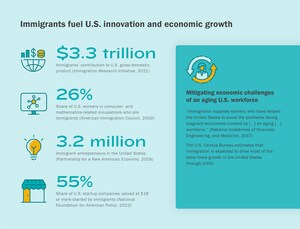BOSTON, June 4, 2024 /PRNewswire/ -- Researchers from Analysis Group, a global leader in health economics and outcomes research (HEOR), have coauthored a study detailing how treatment-free intervals (TFIs) can be an effective surrogate in retrospective data analyses for understanding therapy effectiveness for conditions that present multifaceted symptoms across widely divergent patient populations, such as irritable bowel syndrome with diarrhea (IBS-D). The study, published in the journal Advances in Therapy, is the first to use TFIs to assess real-world IBS-D therapy response, using two of the most commonly prescribed treatments in the US: rifaximin and eluxadoline.
While the Food and Drug Administration (FDA) recommends using a five-item opinion-based questionnaire to measure patient-reported outcomes (PROs) that capture clinically important signs and symptoms to define treatment effects in clinical trials, it is challenging to apply this method to evaluate real-world outcomes in retrospective studies. The difficulty lies in the complex presentation of IBS-D, a common, chronic, relapsing, and potentially severe disorder of gut–brain interaction characterized by troublesome symptoms such as abdominal pain, diarrhea, fecal urgency, and bloating.
To overcome these challenges, study investigators analyzed US commercial claims data for 9,255 IBS-D patients receiving one of the two treatments over the course of one year. The researchers focused on patients' TFI patterns – the length of time a patient remains off treatment after a course of therapy. Patient characteristics included age, sex, health plan type, region, and provider specialty, as of the index date. During baseline, medically relevant comorbidities (both gastrointestinal- and mental health–related), procedures (e.g., anesthesia, surgery, radiation services), and treatments were reported. Investigators specifically examined the duration of the index treatment, the number of prescription fills, and all-cause health care costs among adult patients with IBS-D treated with rifaximin or eluxadoline.
The researchers concluded that TFIs may be a meaningful proxy for measuring treatment effectiveness in IBS-D. Using this method, they also found that patients treated with rifaximin had longer TFIs and lower health care costs than patients treated with eluxadoline.
"The challenges of studying IBS-D are similar in many ways to those faced with oncology, where important treatment goals include medication-free periods associated with symptom control, especially when there is a treatment-related toxicity or financial burden associated with treatment changes or combination therapy," said study investigator Annie Guérin, a Managing Principal with Analysis Group. "Our approach to using TFIs was based on the proven strategies used in oncology, where patients value treatment-free periods because they are associated with improved health-related quality of life."
The study, "Treatment-Free Interval: A Novel Approach to Assessing Real-World Treatment Effectiveness and Economic Impact Among Patients with Irritable Bowel Syndrome with Diarrhea," was published in April in Advances in Therapy.
In addition to Ms. Guérin, investigators included Vice President Patrick S. Gagnon, Associate Rebecca Bungay, and Senior Research Professional Remi Bellefleur of Analysis Group; Brian E. Lacy of Mayo Clinic; Zeev Heimanson of Salix Pharmaceuticals; Brock Bumpass, Danellys Borroto, and Ankur A. Dashputre of Bausch Health; and George Joseph of BioNTech US. Funding was provided by Bausch Health.
To learn more about Analysis Group's HEOR capabilities, visit www.analysisgroup.com/healthoutcomes
About Analysis Group's HEOR, Epidemiology & Market Access Practice
Founded in 1981, Analysis Group is one of the largest international economics consulting firms, with more than 1,200 professionals across 14 offices. Analysis Group's health care experts apply analytical expertise to health economics and outcomes research (HEOR), clinical research, market access and commercial strategy, and health care policy engagements, as well as drug safety-related engagements in epidemiology. Analysis Group's internal experts, together with our network of affiliated experts from academia, industry, and government, provide our clients with exceptional breadth and depth of expertise and end-to-end consulting services globally.
Contact:
Analysis Group
Eric Seymour, +1 978 273 6049
[email protected]
SOURCE Analysis Group

WANT YOUR COMPANY'S NEWS FEATURED ON PRNEWSWIRE.COM?
Newsrooms &
Influencers
Digital Media
Outlets
Journalists
Opted In






Share this article